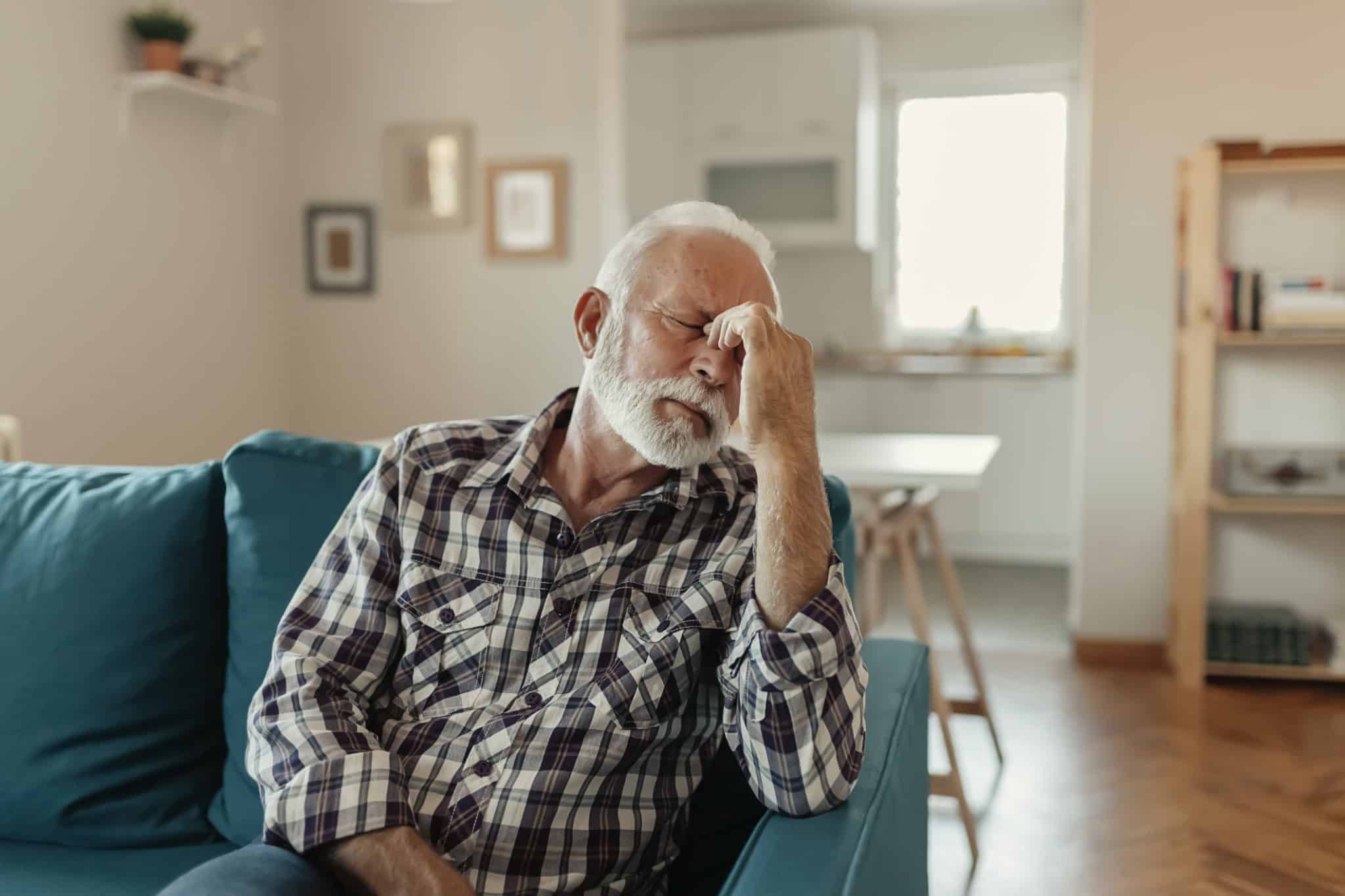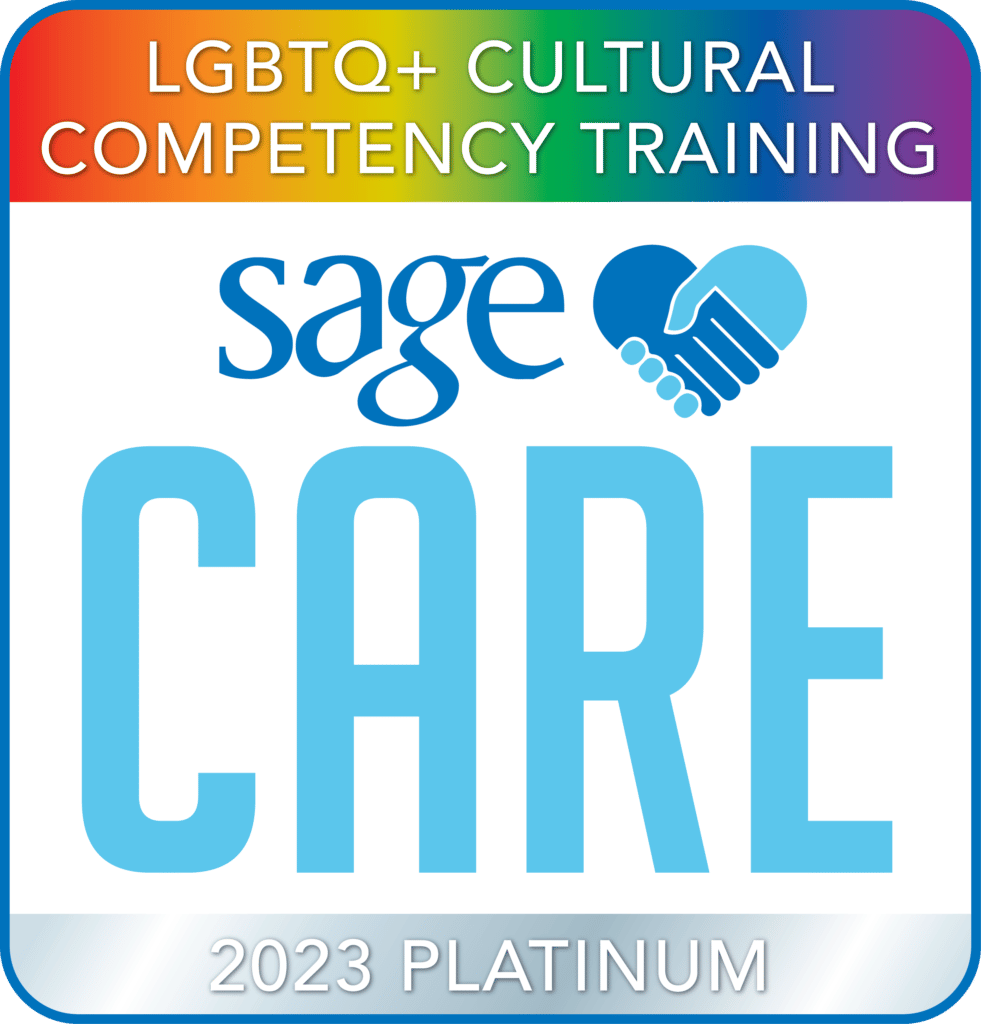5 Ways to Tackle Senior Depression

May is Mental Health Awareness Month and an important opportunity to address a very real issue for seniors: depression. It’s important to note, depression is more than feeling sad from time to time.
Depression affects how older adults think, feel and go about everyday tasks in their lives. It can also negatively impact preexisting physical and medical issues. That’s why it’s so important to know the signs of senior depression and look into treatment options immediately.
Our team of specialist in-home aides for seniors in NJ have put together a list of invaluable tips to help recognize risk factors, symptoms and treatments for senior depression to better support your loved one in regaining their mental health.
How is depression different in older adults?
Depression affects older adults differently than younger people, often lasting longer and accompanying other health conditions. For example, seniors with depression are at higher risk for cardiac diseases and poorer outcomes, even death, from an illness. Seniors experiencing depression also find it more challenging to rehabilitate after an illness, fall, or surgery, increasing their risk of not regaining their earlier independence, as well as their risk of complications.
5 Risk factors for senior depression
In seniors, risk factors for depression include:
- Genetic history. People with a family history of depression and relatives with depression are more likely to suffer from this illness.
- Brain chemistry. Our brain chemistry plays a powerful role in contributing to depression, mood and even personality changes. A change in this brain chemistry can significantly impact mental health.
- Trauma and stress. A physically or emotionally traumatic experience can trigger depression – for example, the loss of a close friend or spouse, a disability, a natural disaster, abuse, or a serious medical diagnosis.
- Social circumstances. A change in our social connections and support can have a powerful impact on how we feel. A move to a new home, feeling as though you are losing independence or are isolated by the distance from loved ones, can all cause depression.
- Medication. Some medications can worsen depression, including beta-blockers, blood pressure medication, high-cholesterol medication, sleeping pills, estrogens and painkillers.
Recognizing depression in a loved one – 9 symptoms
We all go through periods of feeling up or down, but when the latter becomes a dominating factor in daily life, it’s likely that your loved one is suffering from depression. Symptoms can include:
- Persistent feelings of sadness, loneliness and isolation.
- Withdrawing from social occasions/hobbies that are usually enjoyed.
- Sleeping much more or much less than usual.
- Having trouble focusing and concentrating.
- Dramatic weight changes.
- Feeling fatigued, low energy, and slowing down.
- Feeling worthless and helpless.
- Unexplained aches, pains and digestive complaints.
- Neglecting personal care, medications, and hygiene.
While we often consider depression as something connected to sadness, it is not the same as sadness or grief, which is normal and healthy. Feelings of sadness and grief generally come and go, ranging in intensity, while depression is a constant, unending feeling of despair and emptiness.
Here’s how senior depression can be treated
- Psychotherapy. Traditional therapy and cognitive behavioral therapy can help diagnose depression, uncover the roots of the illness, and empower seniors to manage and overcome this issue.
- Support groups. These groups connect seniors who are experiencing similar issues, creating a safe space to talk, support one another, and make social connections. You can find some good support groups through your doctor, home health aide, religious or spiritual group, or nonprofit organizations focusing on specific health conditions, disabilities, or health issues.
- Antidepressants. There are a wide range of antidepressants that a doctor can prescribe to help treat the symptoms of this condition and improve brain chemistry. Usually, this is used in conjunction with other treatments to help tackle the different causes of depression.
- Find a purpose. Senior loneliness, isolation and loss of independence are significant triggers for depression. Seniors have so much to offer their community. Whether it’s mentoring younger people, teaching a class, adopting a pet or joining a club, reviving or finding a new purpose can help re-establish self-worth. Finding a purpose can also help seniors thrive in their community while building stronger social connections with the people around them.
- Adopt healthy habits. Exercise and good nutrition aren’t a cure for depression, but they are a very effective way to help treat and manage this condition. Exercise helps release endorphins in the brain, improving mood and quality of sleep. And a balanced diet keeps blood sugar levels under control, supports healing and a healthy body.
Having an in-home caregiver with your senior loved one on a regular basis can help combat feelings of sadness and loneliness. A highly skilled in-home aide can also recognize the early signs of senior depression, alert families of the issue, and provide professional referrals for treatment.
United Methodist Communities HomeWorks is a great resource for seniors and their families, that provides in-home aides across New Jersey. From assistance around the home with daily tasks to respite or live-in care, we can support you and your senior parent through the compassion and expertise of our highly trained in-home caregivers.
To learn more about all of our in-home senior care services in NJ, please contact us today or visit our website at:
https://umcommunities.org/homeworks/discover-your-loved-ones-new-home/





